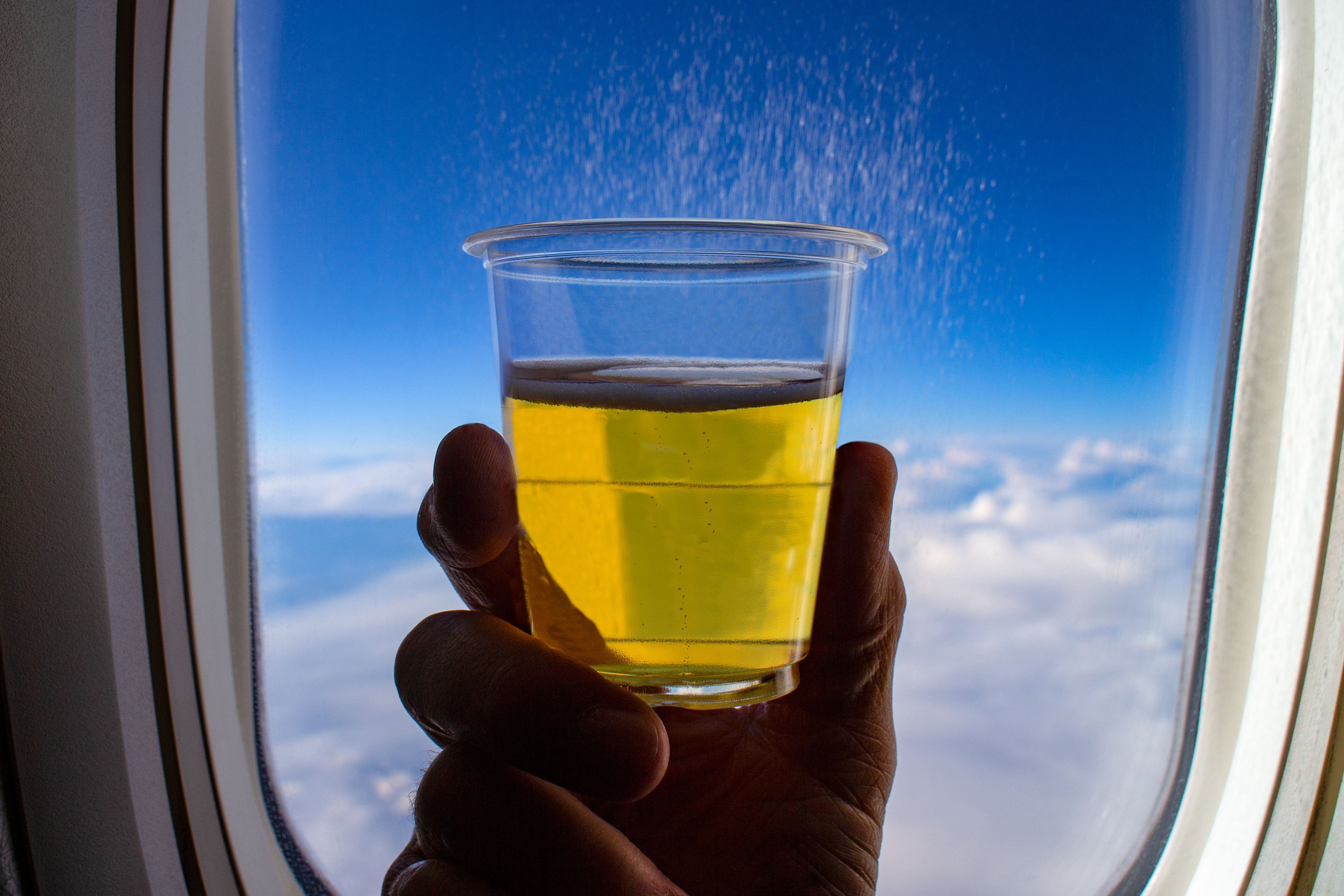
These 2 Airlines Allow Flight Attendants To Drink On The Job
Usually, it’s not permitted for flight attendants to drink alcohol while they are on duty. However, for two North American airlines, there are unique circumstances where your flight attendant could be sitting in the back aisle having a glass of their favorite drop.
It’s not relatively as easy and straightforward as you might think
Flight attendants usually complete a number of sectors (flights) each day within their schedule. An example of this could be a Miami-based flight attendant flying Miami—New York—Denver—Miami. While this might sound not unusual at all, if they are actually only ‘working’ on three of these services and then ‘dead-heading’ the last, this is where they are permitted to order a glass of their favorite Merlot.
Photo: Verzellenberg I Shutterstock
Deadheading is a term used when a flight attendant is flying during the day from one city to another but not physically working. This is common where flight attendants can only work a certain number of hours on their feet and then need to take a final flight to either return to their home base or their intended layover point. This can be the same if they are traveling to a certain point to start their shift, but they cannot enjoy the sweet savor of an alcoholic beverage on their flight to work.
There are a few caveats for United Airlines crew members before they can crack open a drink on the flight home
For Chicago-based ![]() United Airlines
United Airlines
, the carrier is one of only two airlines allowing flight attendants to drink while on duty. The scenario for United Airlines – which permits its crew to drink alcohol when they are on duty (but only when deadheading their final flight) – is allowed if they are not expected to work anymore on that given day.
While a crew member that is ‘dead-heading’ is technically off-duty, they are listed as part of the operating crew for every flight; this is due to the airline needing to factor in reserve crew in case of a last-minute hiccup with those that are rostered to operate the flight.
With this caveat, you will see those crew members who are deadheading, remaining drink-free until the doors are closed, seatbelt signs are on, and you’re in the air before they start requesting their favorite mixer. This is to ensure that they will not be called upon at the last minute to step and serve for another absent crew member.
United Airlines allows their crew to enjoy a ‘cold one’ at the end of a long day
Star Alliance founding member United Airlines has a policy that grants its crew a rare exception to the no-alcohol policy adhered to by many of the world’s largest airlines. United allows its crew members the opportunity to drink alcoholic beverages when deadheading, which effectively gives them the same privileges as a paying passenger. While you might think that the crew member enjoying such privilege would ecstatically let their hair down, they still must adhere to general airline rules and ensure they remain fit for duty, such as last-minute schedule changes or any other emergency scenario.
The carrier has decided to recognize the complexities of operating the world’s largest airline by fleet size. United views operational requirements as a balance with employee well-being. As such, it has its approach to staff management, with the unique rule that means the deadheading crew can drink alcohol onboard.
Another expectation from United is that deadheading crew who plan to enjoy a drink must do so not in uniform and will have to wait for the doors to be fully closed before they are allowed to crack open a cold one.
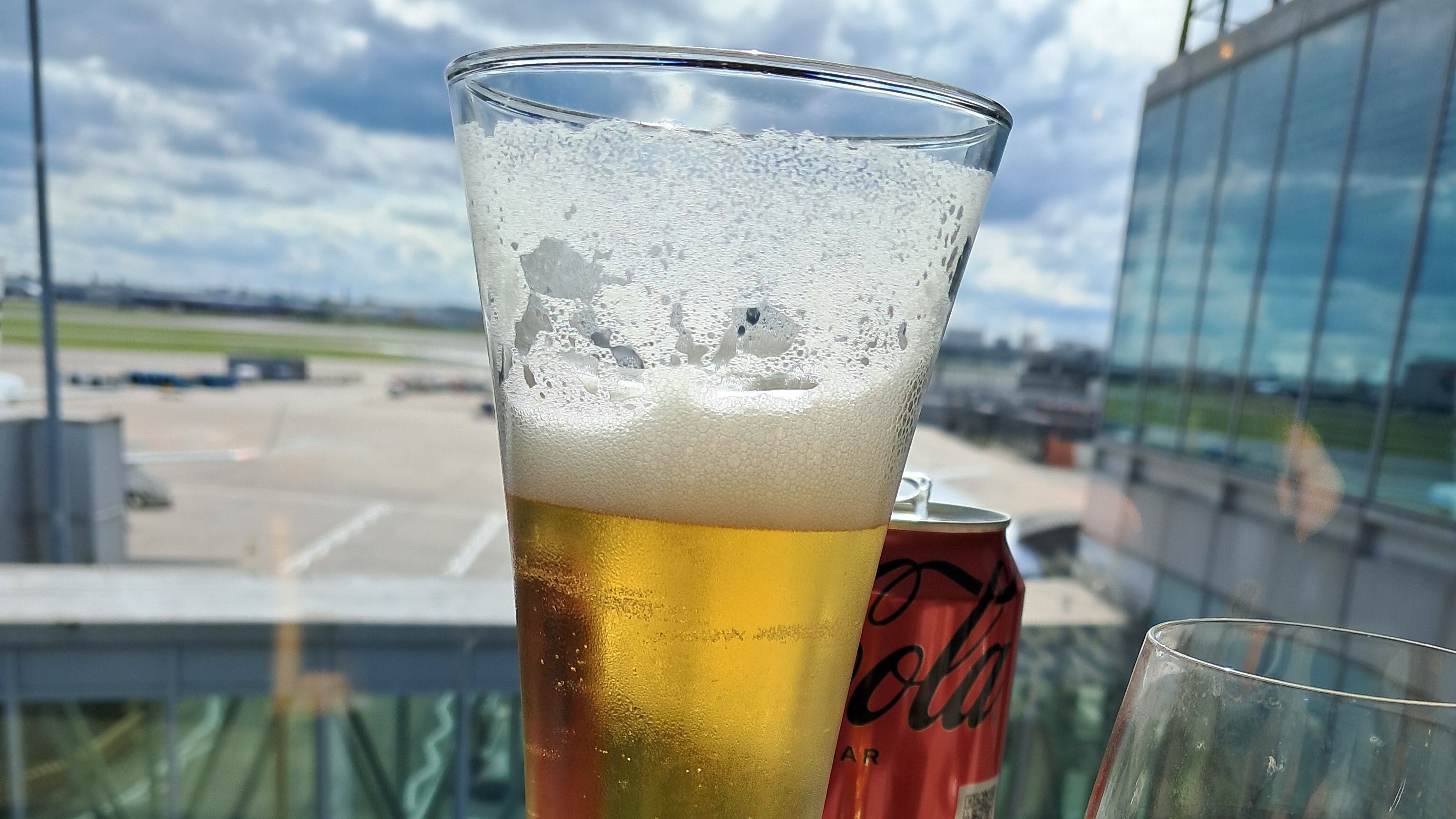
Related
Self-Serve Alcohol At Airport Lounges: A Welcome Treat Or A Recipe For Disaster?
For the most part, airport lounges are truly wonderful places to while away the hours as you wait for your flight. Away from the hustle and bustle of the main terminal, these oases of calm represent a tranquil environment to prepare for departure while enjoying the ability to relax, work, wash, and, of course, indulge in more than your fair share of high-end food and drink.
With the catering in airport lounges being included in the ticket price, it can be easy to go overboard. While this is unlikely to impact your fellow passengers if you have a little too much to eat, drinking too much alcohol can have more serious consequences. Indeed, recent years have seen a rise in incidents involving disruptive passengers, with drunkenness often playing a role.
This begs the question as to whether it is responsible for self-serve alcohol to be available in airport lounges, as this avoids the human interaction with bar staff who might refuse service to someone who already seemed three sheets to
North of the border, Air Canada has a similar policy for its crew members
Canada’s flag carrier,  Air Canada
Air Canada
, is the second carrier in North America to allow such a benefit to their team members, which aligns with similar rules to that of United. ![]() Delta Air Lines
Delta Air Lines
once also had such a policy. However, this has since been removed.
Air Canada, the country’s largest carrier by fleet size, passenger numbers, and network, has three main bases across the country: Vancouver
, Toronto
, and Montreal
, with multiple regional bases scattered across the country. It will permit its crew to drink while onboard solely when they are deadheading flights. They are not expected to work another flight that day. Further to this requirement, crew cannot consume alcohol if they are to be flying within eight hours of their next flight.
The Federal Aviation Administration’s perspective on alcohol regulation
In the United States, the Federal Aviation Administration (FAA) has clear guidelines that are expected to be kept by airlines, and if violated, can lead to individuals being required to drug or alcohol testing.
Photo: Tom Clausen | Shutterstock
These regulations are outlined in 14CFR part 120 and constitute a violation of the FAA drug and alcohol testing regulation if:
- You have a verified positive result on a drug test
-
Misused alcohol (further details outlined below)
- Alcohol concentration of 0.04 or greater
- Drinking alcohol while on duty
- Drinking alcohol within eight hours of duty for a pilot, flight attendant, or air traffic controller or four hours for all other employee categories
- Drinking alcohol within eight hours following an incident
- Refusal to submit testing
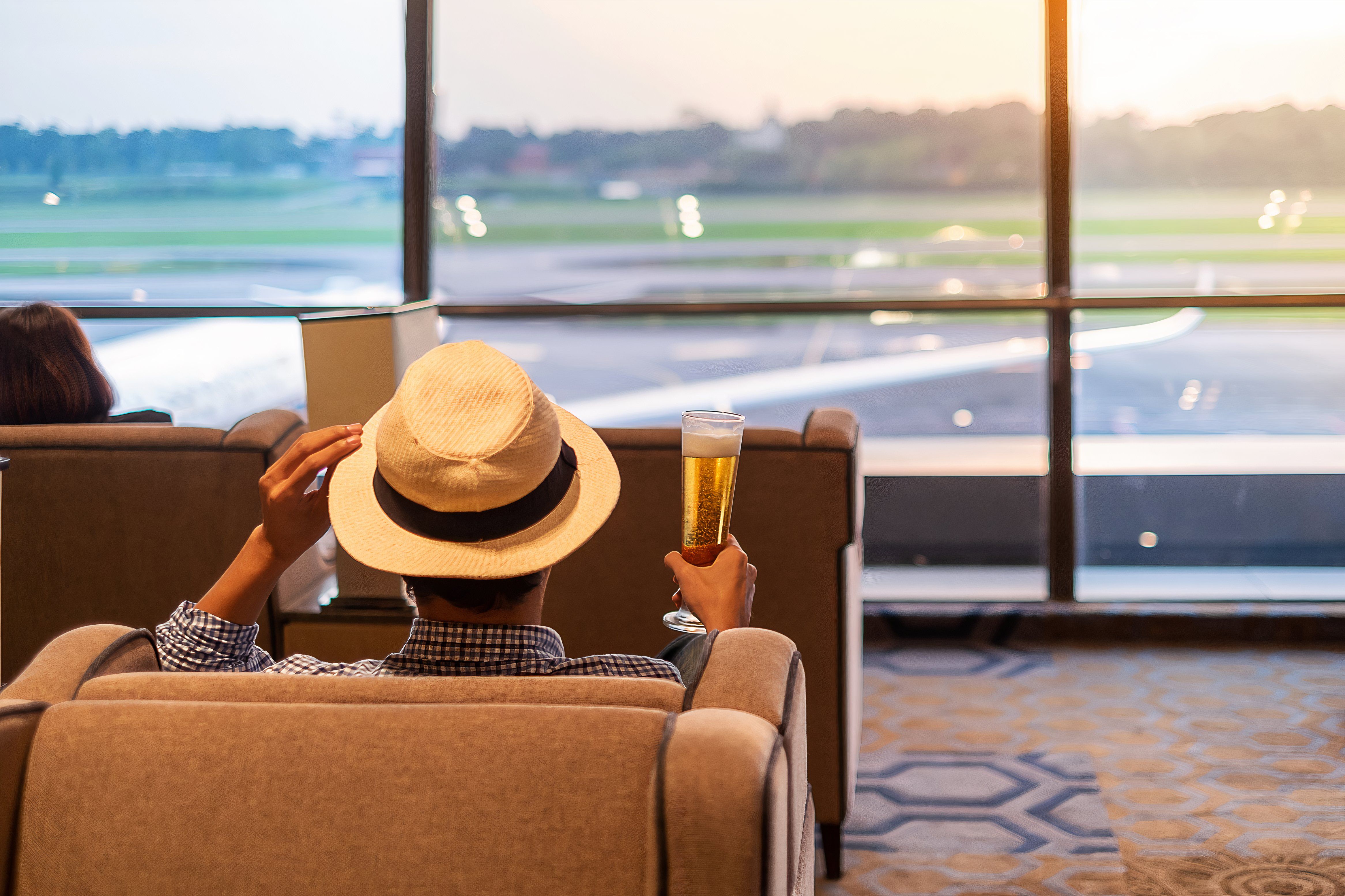
Related
Should Airports Have A Limit On Alcohol Sales?
In a bid to reduce alcohol-related incidents, Ryanair CEO Michael O’Leary today shared that he feels airports should have a two-drink limit. The executive told the Daily Telegraph that reducing alcohol consumption would help battle the rise in disorder on flights. Several airlines have reduced alcohol service on their services in recent years following the increase in misconduct. Do you feel such a move at the airport would also help? Let us know below!
Understanding the risks of drinking alcohol for both passengers and crew
Drinking alcohol onboard is common practice for many passengers as they are flying, whether that be near or far. Airlines commonly include complimentary food and beverages as part of their onboard offering. However, there are several risks that passengers and crew onboard should consider before they pick up the next glass:
|
Increased intoxication |
There are lower oxygen levels onboard an airplane, which can lead to alcohol being more potent, leading to quicker intoxication |
|---|---|
|
Drowsiness |
It is common to feel more drowsy or lightheaded when drinking onboard an aircraft compared to doing similar on land |
|
Dehydration |
Due to low humidity, it is easier to become dehydrated onboard. This can lead to headaches, dry mouth, and fatigue |
|
Motion sickness |
Due to alcohol upsetting your inner ear balance, passengers who consume alcohol can have heightened motion sickness, nausea, and dizziness |
|
Impaired judgment |
Drinking excessively can lead to poor decision-making and disruptive conduct. If you are caught misbehaving onboard, this can lead to : |
|
Deep Vien Thrombosis (DVT) |
The risk of blood clots can occur due to poor circulation. This is common when sitting for long periods, such as on a long-haul flight |
|
Interaction with medication |
Passengers or crew that may be on prescription medication can experience adverse side effects when mixing with alcohol |
|
Sleep Quality |
While some passengers may drink to help them get to sleep, due to dehydration or bloating, this can lead to disruptive sleep and more frequent awakenings |
The possible negative consequences of letting airline crew drink while onboard
Each airline sets out its own behavioral conduct policies for crew while they are employed by the airline, and United Airlines and Air Canada have slightly more flexible rules than other North American carriers. Irrespective of the requirements set out by the FAA and the airline itself, some common concerns should be considered before drinking while deadheading.
Professionalism and passenger perception are among the main reasons that airlines expect their crew to enjoy this benefit. The crew must be out of uniform before enjoying an alcoholic beverage. Should the airline permit crew to drink in uniform, it could be detrimental to the airline’s reputation. If the crew member was still in uniform, a passenger onboard could easily mistake them for crew members.
Numerous safety concerns should also be considered, such as impaired judgment, reaction time, and coordination in various scenarios and emergencies. If a crisis occurs onboard, the deadheading crew is expected to assist the crew where required. The crew should always ensure that they remain professional, compliant, and ready to help when needed, ensuring that they remain sensible and enjoy their drink in moderation.
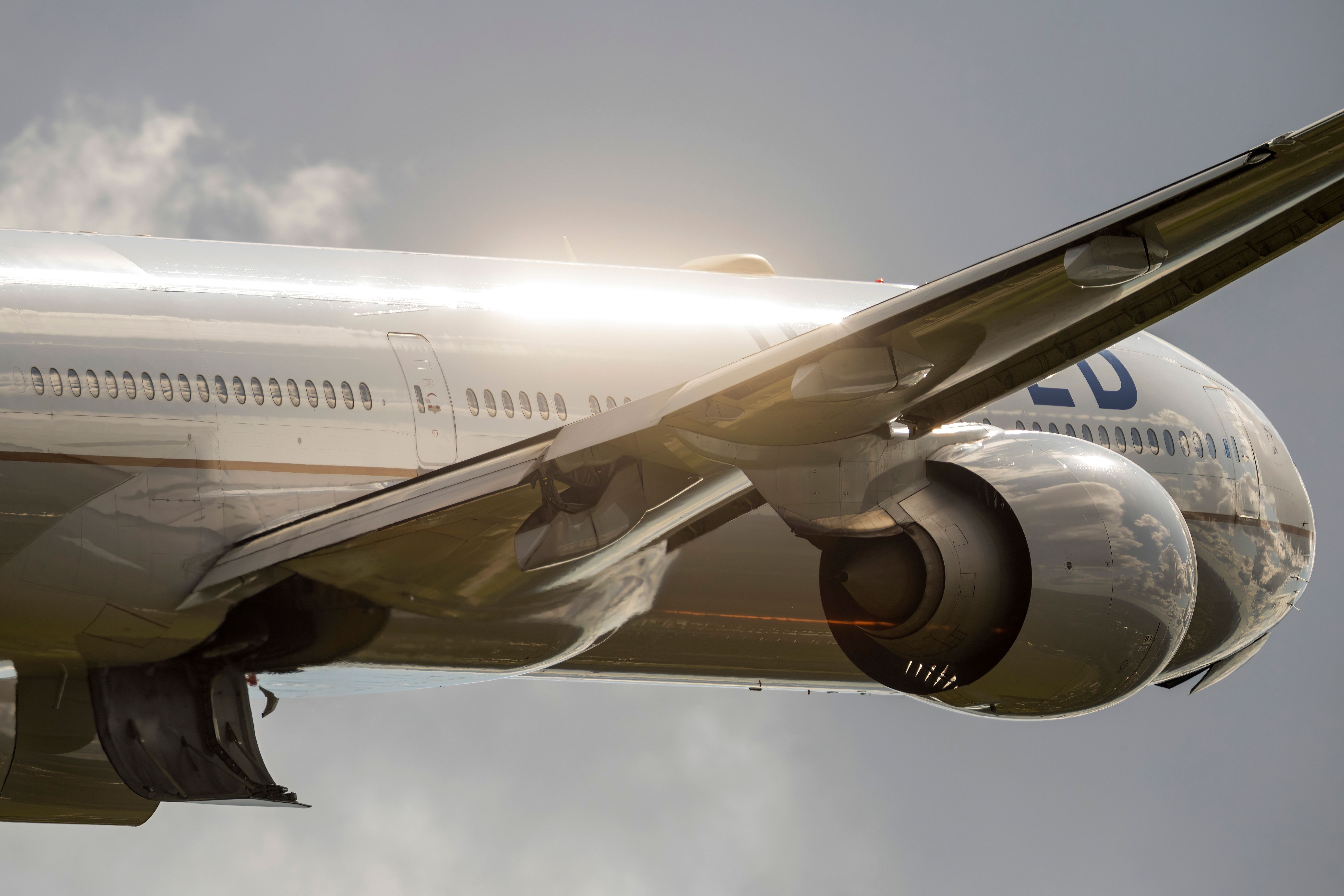
Related
FAA Finalizes Rules Requiring Drug and Alcohol Testing At Foreign Aviation Repair Stations For US Airlines
Aviation repair stations around the world will have until December 2027 to become compliant.
Airlines around the world that don’t serve alcohol at all
From one extreme to the other, in the Middle East, several airlines do not serve alcohol onboard at all. This is due to religious rules, local legislation, and airline choices.
These airlines include (but are not limited to):
-
Air Arabia
- United Arab Emirates low-cost-carrier
-
Biman Bangladesh Airlines
- The flag carrier of Bangladesh does not service alcohol onboard due to local regulations
-
Jazeera Airways
- A Kuwaiti low-cost-carrier
-
Kuwait Airways
- The flag carrier of Kuwait. The airline also prohibits unopened alcohol from being in checked or hand luggage.
-
Royal Brunei Airlines
- The government-owned airline from Brunei, a small Muslim country in Southeast Asia, does not serve alcohol onboard.
-
Iran Air
- The national carrier of the Islamic Republic of Iran does not serve alcohol on any of its flights
-
Saudia
- The flag carrier for the Kingdom of Saudi Arabia strictly prohibits alcohol onboard
Other notable mentions include Garuda Indonesia and Turkish Airlines, which, while they serve alcohol on international flights, do not provide such a privilege for those traveling on domestic services.
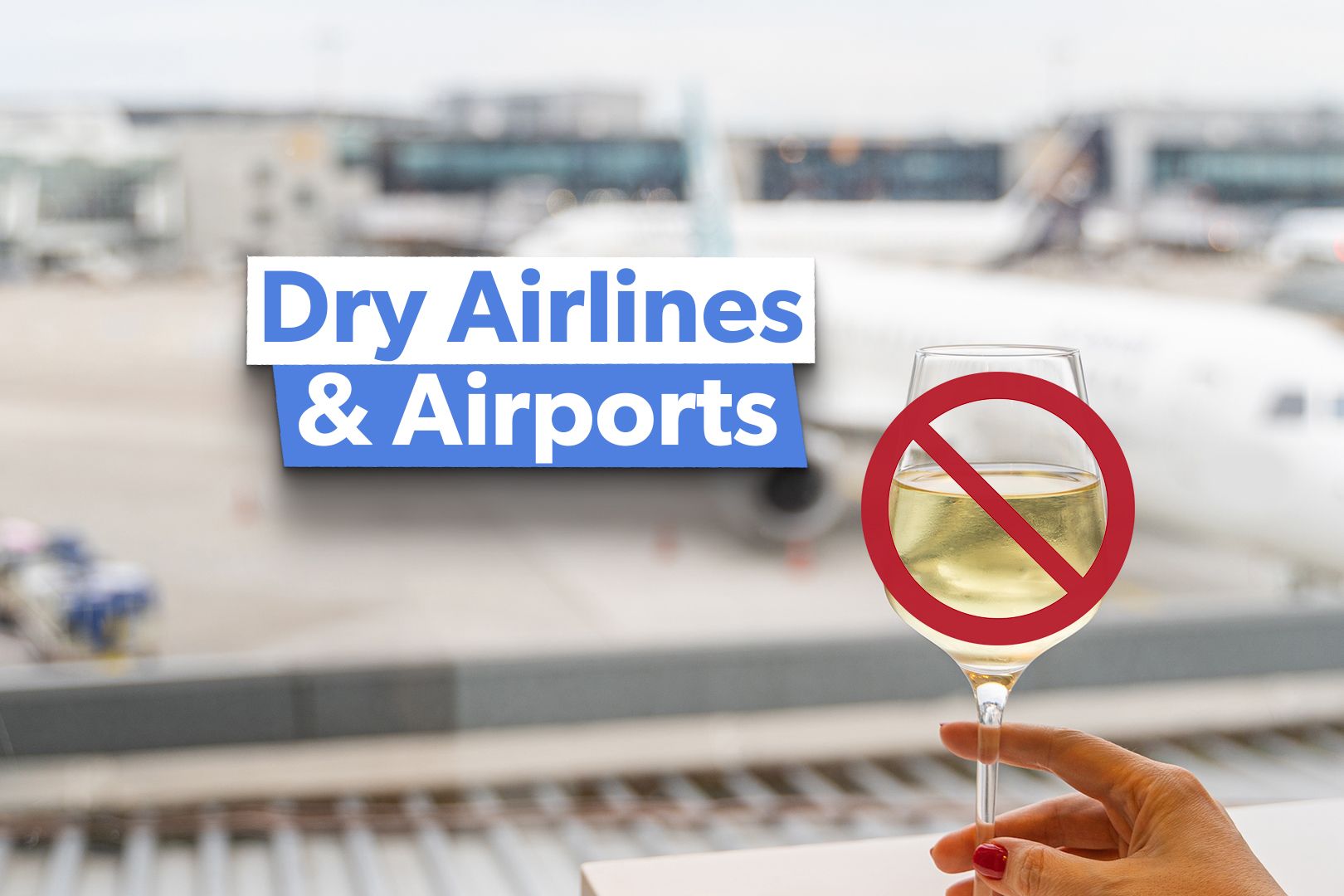
Related
No Alcohol? These Airlines & Airports Around The World Are Dry
For many passengers, enjoying a drink or two is all part of the flying experience. However, this isn’t possible everywhere.
